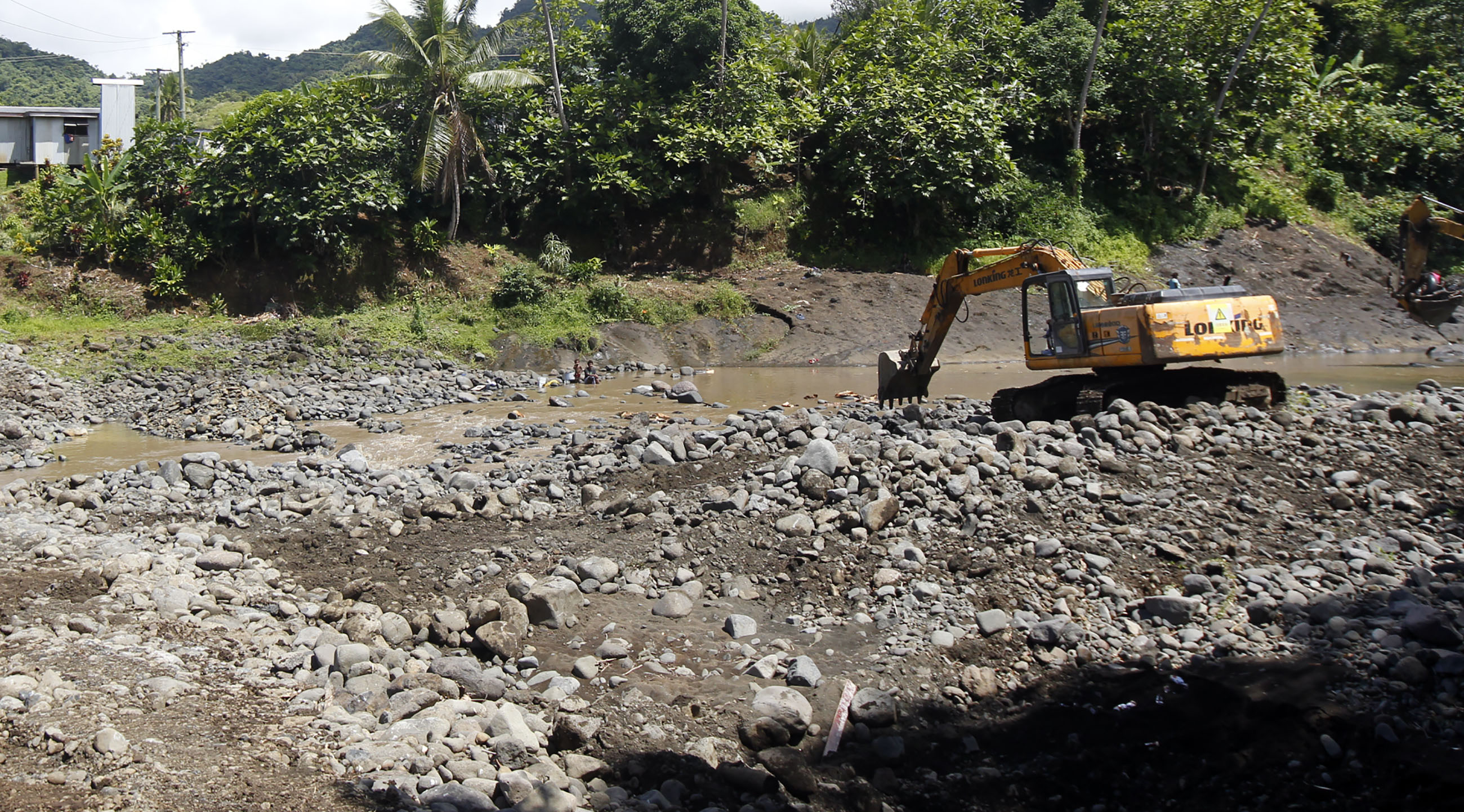RIVER gravel extraction has been identified as one of the risks threatening the supply of safe and clean water in Fiji.
This was revealed in a recent report released by the United Nations Development Programme (UNDP) titled Baseline Assessment of Development Minerals in Fiji.
“River extraction is currently having a negative impact on sanitation and the availability of clean water for Fijian communities,” the report stated.
“Consultations with people living downstream of river extraction sites, the reported has further highlighted, that several cases of waterways had become contaminated by sediment and in some cases, it was oil. To a point where they are no longer suitable for bathing and cleaning, thus leading to a reduction of the hygiene and sanitation levels in the communities.”
According to the report’s environmental impact assessment, rivers are dynamic systems, connected to the land, coast and ocean and people depended on these rivers for drinking, watering plantations, cooking, bathing, washing clothes and drinking water for livestock such as cows and goats.
“Providing habitats for numerous organisms; therefore altering the natural environment of a river has the potential for far reaching cumulative impacts.”
The report revealed that sediments were a naturally occurring component of Fiji’s aquatic system. However, river extraction had the potential to increase suspended sediment above natural levels, where direct action of extraction sediment from the river channel disturbed the bed and released sediment into suspension.
“Therefore, increased suspended sediment associated with river extraction decreases the hygiene standards of Fijian communities and creates health risks.”
Water Authority of Fiji’s acting team leader corporate communications Peni Shute said the impact on water supply would depend on certain areas on which river gravel extraction was taking place.
“It depends on certain areas, where we source water from. For instance, the Waila Water Treatment Plant is sourced from the Waimanu River. So if gravel extraction is happening upstream, it would,” he said.
Minister for Environment and Waterways Dr Mahendra Reddy said he was not aware of the report upon request for a comment after commissioning the RFNS Volasiga at the Stanley Brown Base in Walu Bay, Suva on December 5.
However, prior to this, a copy of this report was sent to Dr Reddy and Ministry of Environment permanent secretary Joshua Wycliffe.
No responses have been received by this newspaper. Questions sent via electronic mail (email) to Minister for Lands and Mineral Resources Ashneel Sudhakar on December 5 and again yesterday remain unanswered.



